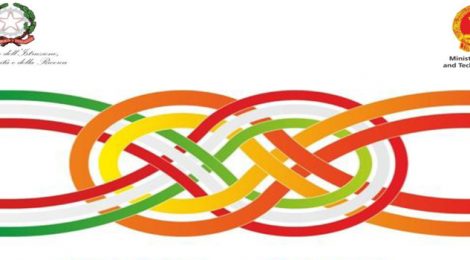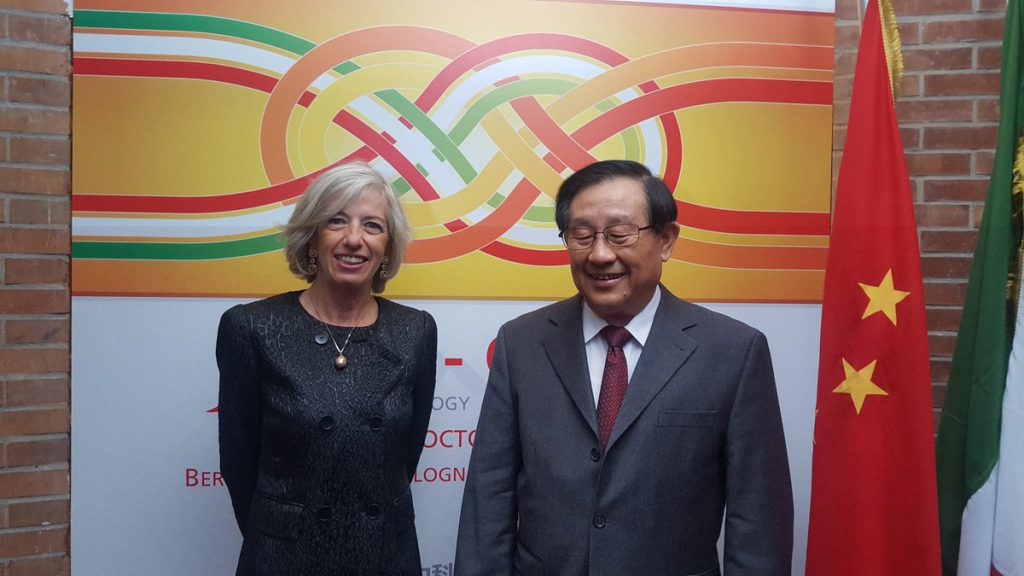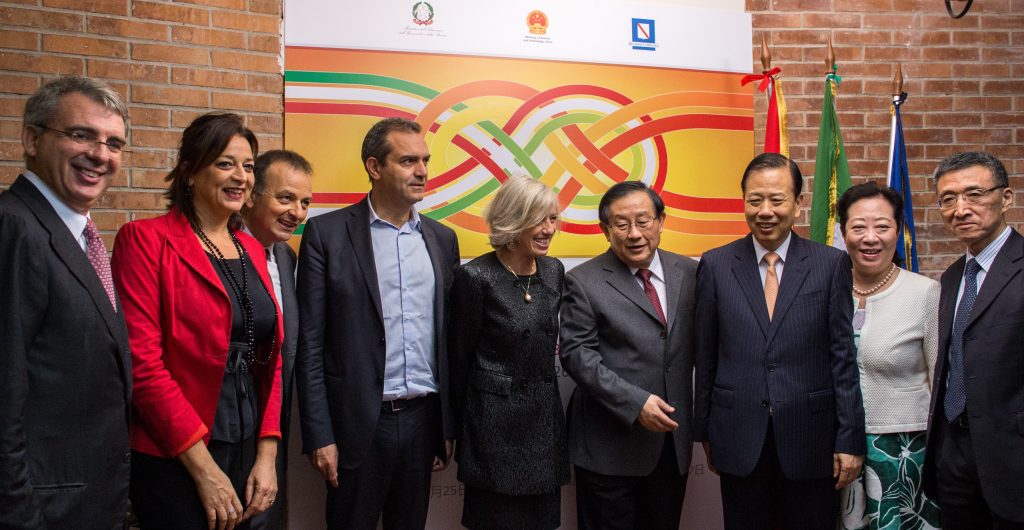
China-Italy Science Technology and Innovation Week: road toward enhanced cooperation
Bergamo, Bologna and Naples hosted the 2016 edition of the China-Italy Science Technology and Innovation (CISTI) Week, to promote a continue dialogue between Italy and China on innovation, science and technology and build a stronger partnership among our two countries.
On 27 October the Italian Minister of Education, University and Research, Hon. Stefania Giannini, met at the Science Centre (Città della Scienza) with her Chinese counterpart, Hon. Wan Gang, Minister of Science and Technology. As Hon. Giannini highlighted, Italy and China are linked by a strong cooperation based not only on technology, but also on the attention paid to competitive and sustainable growth and investment on human capital. China’s New Silk Road is built on a renewed dialogue on research and innovation; the Week is an important step in strengthening this cooperation, and has proved a stable platform for the exchange of experiences and competences in the last two years.
 CISTI Week in numbers: over 500 Chinese delegates, 1200 Italian delegates coming from 700 different realities, including universities, research centres, innovative enterprises and start-ups. Valeria Fascione, Councillor for Internationalization, Innovation and Start-ups of Campania Region underlined the importance of a ten year-cooperation with the Beijing Association for Science and Technology (BAST), representing the foundation of many new opportunities based on Italy-China partnership on Science and Technology.
CISTI Week in numbers: over 500 Chinese delegates, 1200 Italian delegates coming from 700 different realities, including universities, research centres, innovative enterprises and start-ups. Valeria Fascione, Councillor for Internationalization, Innovation and Start-ups of Campania Region underlined the importance of a ten year-cooperation with the Beijing Association for Science and Technology (BAST), representing the foundation of many new opportunities based on Italy-China partnership on Science and Technology.
From the Italian side, inter-regional cooperation is key to give this partnership a new scope and for Italy to play at its full national capacity. Italians need to focus on their areas of excellence, the sum of which will produce our national outcome. Internationalization is a bilateral process where each side gives its contribution, on the one hand promoting the system of regions, on the other attracting investments and talents toward our country.
Italian policy on research and strategic industries focuses on 12 national clusters, eight of which are already under way with 500 private and public entities, large, medium and small enterprises, start-ups, research centres and academia, organised on specific research fields. The clusters concentrate on Industry 4.0, Life Science, Agri Food, Aerospace, Technologies for Smart Communities, to which to add four very important sectors: Blue Economy, Made in Italy, Energy and Cultural heritage. These are the macro working areas at Italian national level, from which every region chooses its own priorities. The time has come to make a real step toward a deep contamination between different people and cultures, from which to create innovation – emphasised Monica Barni, Vice President of Tuscany Region.
Domenico Arcuri, Chief Executive Officer of Invitalia analysed why a place becomes attractive for citizens and firms planning to invest and establish abroad: when it is easy to create wealth in there. In this case wealth does not imply just richness, but also progress development, employment and finally GDP. The conditions to create such an environment depend not solely on the availability of capitals, but on the time required to make an investment profitable and the certainty of human capital, universities, ecosystems available.
 The Italian government has introduced different new policies in the last few years, one of which is an incentive for those willing to invest more than €30 million, extended also to international actors. A second one consists in a policy to help innovative start-ups, which resulted in more than 700 new entities, homogeneously distributed on the territory and with a reasonable mortality rate.
The Italian government has introduced different new policies in the last few years, one of which is an incentive for those willing to invest more than €30 million, extended also to international actors. A second one consists in a policy to help innovative start-ups, which resulted in more than 700 new entities, homogeneously distributed on the territory and with a reasonable mortality rate.
Yin Huilong, Principal Staff Member of Headquarters Economy Development Division of the Beijing Municipal Commission of Commerce gave an overview of Beijing’s environment. The municipality of Beijing has introduced since 1999 stimulus policies to attract transnational enterprises, which were later improved in 2013 and in 2016. Italian enterprises with investments in the capital city are 335, and Italy-Beijing exchanges in goods and services accounts for 2.84 billion dollars, representing one percent of Beijing’s trade volume. Italy is a global leader in design, manufacturing and innovation, and this condition matches with China’s market. With the national plan of “Made in China 2025” China is trying to prompt exchanges on innovation and research, and in the framework of the 13th Five Year Plan the Municipality is introducing new measure to attract a greater number of international firms and create new centres for innovation.
The Week hosted numerous panels of discussions, one of which was coordinated by Galilei Institute’s Director, Prof Di Minin, to discuss about the Italian and Chinese national frameworks of incentives and measures to enhance the creation and internationalisation of start-ups. In Italy several incentives have been introduced in the last few years – the Startup Rotational Fund, Smart&Start aong others – while China has strongly engaged in investing on young talents and start-ups, also through international coordination projects. Of great interest during the panel the presentation of Mr Francesco Rossi, who talked about the opportunities for Italian start-uppers in the Middle Kingdom, and presented his TechSiLu, a company developing synergies between our two countries, with the aim of matching European talents and Chinese investors.
During this edition of the CISTI Week, two centres for Italy-China Centre for Technology Transfer were inaugurated with the support of the University of Bergamo, Federico II University of Naples, NETVAL (Italian Network of Technology Transfer Offices of Universities and Public Research Organizations) and the Science Centre. The centres are located in Bergamo and in Naples, coordinating their work with the aim of developing a platform of services for research centres, universities and enterprises of our two countries to support business matchmaking services, technology transfer, partnerships and the creation and development of new enterprises.




